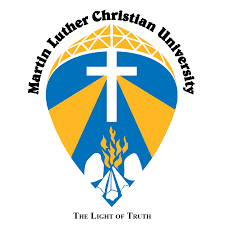Recognization & Accreditations of Martin Luther Christian University
Higher education institutions play a pivotal role in shaping the academic landscape and producing competent professionals. Recognitions and accreditations are vital for validating the quality and credibility of an institution. In the case of Martin Luther Christian University (MLCU), these endorsements affirm the institution's commitment to academic excellence. In this comprehensive exploration, we will delve into MLCU's recognized status, accreditations, affiliations, and their significance in maintaining high standards of education. Martin Luther Christian University stands as an institution of higher learning dedicated to academic excellence, innovation, and inclusivity. Named after Martin Luther, the university embodies the spirit of reformation and progress, fostering an environment of intellectual curiosity and societal engagement. MLCU's mission is to nurture holistic development in students by providing them with a platform to engage with knowledge and experience. Recognitions and accreditations are instrumental in achieving this mission.

 Shillong, Meghalaya
Shillong, Meghalaya
 Private University
Private University
 2005
2005
 UGC
UGC



 back
back